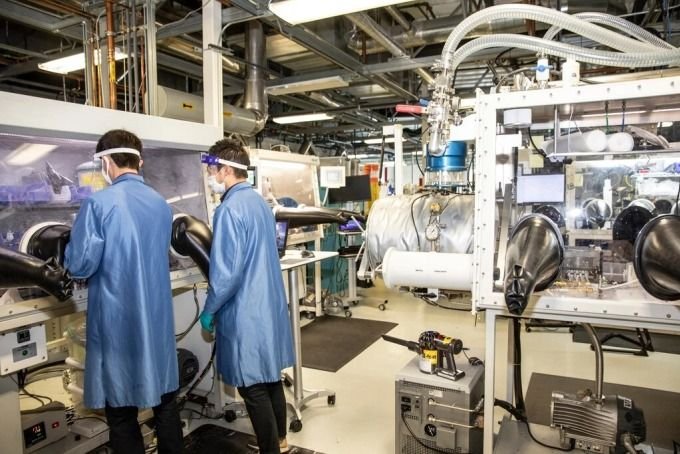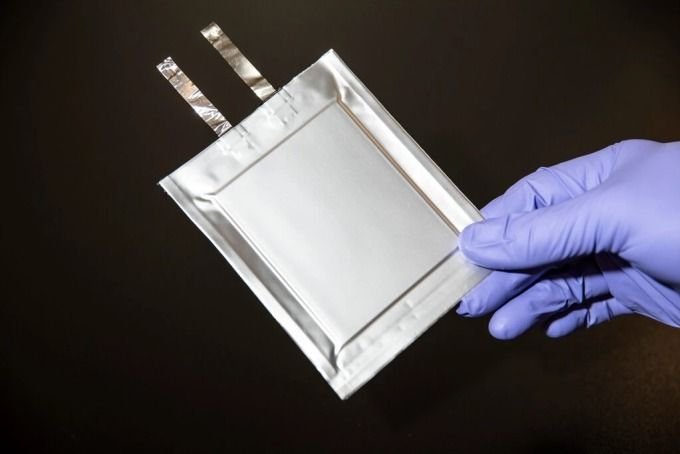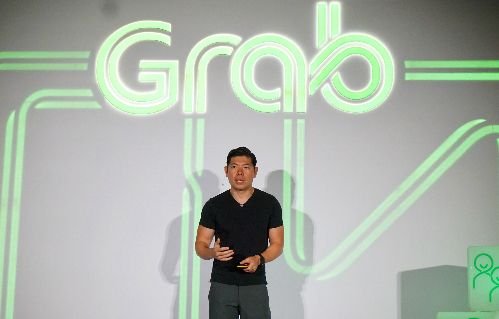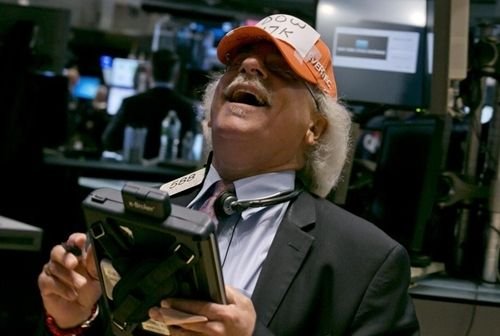
‘Fever’ to produce batteries for electric vehicles
As automakers like General Motors, Volkswagen and Ford Motor make bold promises about transitioning to an electric future, it’s also obvious that they’ll need a lot of batteries.
Demand for batteries for electric vehicles has outstripped supply, fueling a global craze as investors, companies old and new, rush in.
In the past, batteries were considered one of the least interesting components of a car, but now the opposite is true.
Wood Mackenzie, an energy research and consulting firm, estimates electric vehicles will account for about 18% of new vehicle sales by 2030. That increases battery demand by about eight times its production capacity.
The research lab of QuantumScape, an electric vehicle battery startup in Silicon Valley.
Automakers are engaged in a fierce race to get the chemical formula that delivers the most power at the lowest price and in the smallest package.
Battery production is currently dominated by companies such as Tesla, Panasonic, LG Chem, BYD China and SK Innovation.
`I think we are in the early stages, with more money than ideas,` commented Andy Palmer, Former CEO of Aston Martin and currently Vice President of InoBat Auto, a battery startup.
QuantumScape, the Silicon Valley startup whose investors include Volkswagen and Bill Gates, is working on a technology that could make batteries cheaper, more reliable and charge faster.
China and the European Union are pumping money into battery technology, while the US also has no intention of standing aside.
The European Union is subsidizing battery production to avoid dependence on Asian suppliers and to preserve jobs in the auto industry.
The US is also expected to promote industry in line with President Biden’s focus on climate change.
Several battery factories are planned or under construction in the US, including one GM is building in Ohio with LG.
`It’s no secret that China is aggressively promoting battery production and development,` said Margaret Mann, a manager at the National Renewable Energy Laboratory’s Center for Integrated Cellular Science, which
Entrepreneurs working in the field say these are early days and American companies can still stay ahead of the Asian manufacturers that dominate the battery industry.
Most experts are certain battery demand will strengthen China, which refines most of the metals used in batteries and produces more than 70% of all batteries.
`There are deep geopolitical divisions,` said Tom Einar Jensen, CEO of Freyr, which is building a battery factory in northern Norway.
Freyr plans to raise $850 million as part of a proposed merger with Alussa Energy Acquisition Corporation.
The battery industry’s top priority is to make it cheaper.
According to Roland Berger, more cost savings can be achieved by making dozens of small improvements – such as manufacturing batteries near car factories to avoid transportation costs – and reducing waste.
However, in a recent study, Roland Berger also warned that growing demand could push up the prices of raw materials such as lithium, cobalt and nickel, effectively eliminating those cost savings.
Many companies have sprung up to find ways to replace expensive minerals used in batteries with cheaper and more common materials.

A piece of QuantumScape’s solid lithium battery.
In the long term, the key to battery technology is to replace the liquid lithium solution at the core of most batteries with layers of solid lithium compounds.
Toyota Motor and other companies have invested heavily in this technology and have succeeded in making several types of solid-state batteries.
However, most in the industry don’t expect solid-state batteries to be widely available until around 2030. Mass-producing batteries is `the hardest thing in the world,` Tesla CEO Elon Musk said recently.
But one thing is for sure: now is the ideal time to own a degree in electrochemistry.
While doing graduate studies in Germany in 2011, he was recruited to work at BMW, because the company wanted to understand the basic science of batteries.
Reiter is currently the head of science at InoBat, whose technology helps customers quickly develop batteries for different uses, such as low-cost batteries for city cars or performance versions


